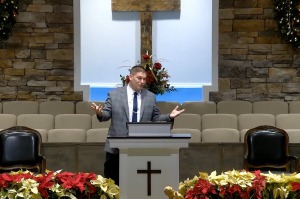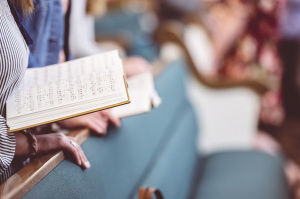More Quakes Rock Indonesia; Foreshadow 'The Big One'
Indonesia has been hit by more than 40 aftershocks since a massive 8.4-magnitude earthquake shook Southeast Asia Wednesday, and seismologists warned that the worst may be yet to come.
On Friday, Indonesia's meteorology agency issued the latest in a series of tsunami warnings after another strong quake shook Indonesia's Sumatra island, although it was lifted about an hour later.
The U.S. Geological Survey measured one Friday aftershock jolting the area at magnitude 6.4.
There have been a series of tremors ranging in intensity from 4.9 to 7.8 since Wednesday's 8.4 quake, according to Reuters, repeatedly setting off tsunami warnings in Indian Ocean countries.
There have been no reports, however, of the sort of widespread tsunami that killed more than 230,000 people in a dozen Indian Ocean nations after the 9.0-magnitude temblor in 2004.
But experts have been predicting a repeat of the deadly earthquake.
Kerry Sieh of the California Institute of Technology, who has spent decades studying the fault line in the area, said these temblors could be leading up to the big one.
"No one can say whether it will be in 30 seconds or 30 years," Sieh said, according to The Associated Press. "But what happened the other day, I think is quite possibly a sequence of smaller earthquakes leading up to the bigger one."
Danny Hillman, an earthquake specialist at the Indonesian Institute of Science, also believes there is a "strong indication" that the latest string of quakes "foreshadows the big one."
"We all agree there is an 8.5 or stronger earthquake waiting to happen," he told AP.
Relief Efforts
The latest quakes have so far killed at least 13 people, damaged hundreds of homes and churned up a 10-foot-high tsunami.
Several towns along the western coast of Bengkulu and West Sumatra province, the closest to the epicenters, reported houses collapsed or scores of buildings partly destroyed or suffering from cracks, noted World Vision International in its latest report. Electricity in many parts of Sumatra was down after the quake, as power stations had broken down, the Christian humanitarian agency added.
"So far, the real impact of the quakes is unclear," said WVI's Humanitarian and Emergencies Assessment manager, Jimmy Nadapdap, in the agency's report Thursday. "We are receiving media reports from the cities of Bengkulu, Padang and Jambi, but we are unsure about what conditions are like in the remote regions there."
As of Thursday, World Vision Indonesia relief teams were en route to assess the impact of the quakes, and Nadapdap said they would provide the international agency with more information, enabling them to make an appropriate response.
Catholic Relief Services (CRS), meanwhile, has long-standing partners in the quake zone that have staff rushing out to communities to gather information for a timely and efficient response. In the meantime, the international humanitarian organization of the U.S. Catholic Church has committed an initial $50,000 to the earthquake recovery effort.
"Between the earthquakes and aftershocks, the damage seems to be more widespread than initially thought – along the coast from Bengkulu, up to Jambi, and reaching as far as Padang," said CRS Indonesia Country Director Rich Balmadier in the latest CRS report. "There's a lot of information we don't know about how this has affected people in the rural areas. We are concerned about the vulnerability in rural villages, where the houses are modest and less equipped to withstand massive impact."
Ramadan
Furthermore, as CRS had noted Thursday, the timing of this disaster at the start of Ramadan has added to the challenge of a recovery effort, which will involve many Indonesians working long days in tough conditions and on empty stomachs.
During the Islamic month of Ramadan, Muslims around the world will be fasting, praying, giving to charity, and putting more effort into following the teachings of Islam. From dawn to dusk, Muslims are required to abstain from food, drink, and sexual intercourse.
Most of the world's 1.2 billion Muslims celebrated the start of Ramadan on Thursday as Indonesians prayed for the victims of a huge earthquake.
According to Agence France-Presse, Muslims in some quake-hit areas were unable to attend their regular evening prayers on Wednesday night as emergency teams assessed the damage.
"The imam had prepared for it but we cannot go to prayers as the mosque is damaged," resident Slamet Purwanto told the Detikcom online news agency from a village in Bengkulu district, among the areas worst hit.
Hundreds of miles away from the epicenter in Medan, Indonesia's third-largest city in North Sumatra, blackouts forced Muslims to pray by candlelight, kerosene lamps and light bulbs rigged to car batteries, AFP reported.
Prior to the quake, Christian leaders had been urging believers to pray for Muslims during Ramadan as it is a time when they are "fasting and more geared towards spiritual things."
"And it's out of a sense for God – a thirst for God and a hunger for God," said evangelist Sammy Tippit, according to Mission Network News, which has organized a Muslim prayer effort. "And during these times of Ramadan, many will have dreams about Jesus."
"[T]he time is now to begin praying that God would draw Muslims to Himself," wrote MNN executive director Greg Yoder for the campaign.
Currently, Indonesia is the world's most populous Muslim nation.





























